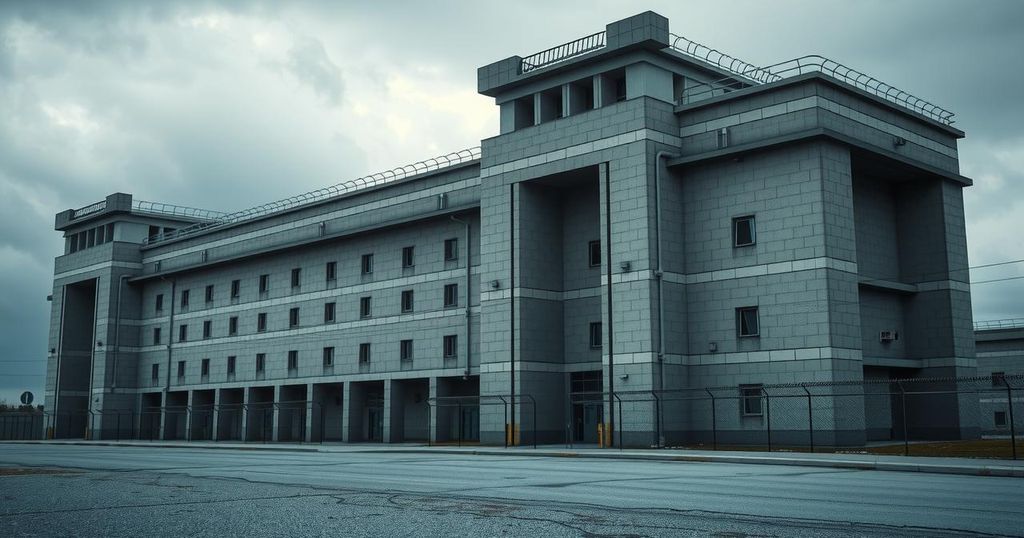Crime
AFP, ASIA, BRAZIL, CHACIN, CRIME, CUBA, DARIEN GAP, DEPARTMENT OF HOMELAND SECURITY, EDWARD, EL SALVADOR, HERITAGE PRESERVATION, ICE, JHON CHACIN, JUSTICE, MARACAIBO, MISSING PERSONS, NORTH AMERICA, ORGANIZED CRIME, PHILIPPINES, RINGO RINCON, SALVADOR, SOUTH AMERICA, TEXAS, TREN DE ARAGUA, UNITED STATES, US, US DETENTION CENTER, VENEZUELA, YULIANA
Sofia Rodriguez
0 Comments
Venezuelan Migrants Wrongly Labeled as Gang Members Due to Tattoos
Venezuelan migrants, including Jhon Chacin and Edwuar Hernandez Herrera, are being wrongly accused of gang affiliations due to tattoos. Their families argue that U.S. authorities have insufficient evidence to support these claims. The accusations raise due process concerns, as experts suggest tattoos do not typically indicate gang membership in Venezuela. Amid ongoing legal efforts, Venezuelan authorities emphasize the need to protect their citizens.
Lawyers and relatives of Venezuelan migrants assert that many have been mistakenly identified as gang members and terrorists due to their tattoos after their deportation to a notorious Salvadoran prison. Jhon Chacin, a tattoo artist, was arrested at the Mexican border for illegal entry into the United States. Subsequently, his family discovered footage of him among chained prisoners in a maximum-security facility in El Salvador, labeled as belonging to the Tren de Aragua, a group designated as terrorist by U.S. law.
Family members, including Chacin’s sister Yuliana, maintain that he does not have a criminal record and was unjustly categorized as a gang member based on body art. At the U.S. detention center, he reportedly faced claims from ICE agents that his tattoos affiliated him with organized crime. Similarly, Edwuar Hernandez Herrera, another deportee, possesses tattoos symbolizing his family, and his mother rejects any notion that they indicate criminality.
U.S. authorities have not presented substantial evidence to confirm that the deported individuals are indeed members of the Tren de Aragua. A senior ICE official noted that many men involved lack criminal backgrounds, which is plausible given their brief stays in the U.S. However, officials have cited specific tattoos as incriminating evidence. For instance, the Department of Homeland Security pointed to soccer player Jerce Reyes Barrios’s tattoos as indicative of gang affiliation, despite claims that they may represent something entirely personal.
Despite the seemingly biased presumption linking tattoos to gang identity, experts like Ronna Risquez contend that tattoos do not uniformly signify affiliation with Tren de Aragua in Venezuela. Former President Trump reiterated this week the importance of thorough vetting but recognized the possibility of misidentification among the deportees. Venezuelan authorities are seeking legal assistance in El Salvador to advocate for the migrants’ release, as millions of Venezuelans continue to flee their nation’s dire circumstances across the globe.
In summary, Venezuelan migrants deported to El Salvador are facing serious accusations of gang affiliation based primarily on their tattoos. Such labeling raises concerns regarding due process and the legitimacy of the evidence used against them. Despite assertions from U.S. authorities and former President Trump’s comments on the vetting process, doubts persist about the accuracy of these assessments, prompting Venezuelan officials to pursue legal remedies for their citizens’ release.
Original Source: www.kten.com




Post Comment